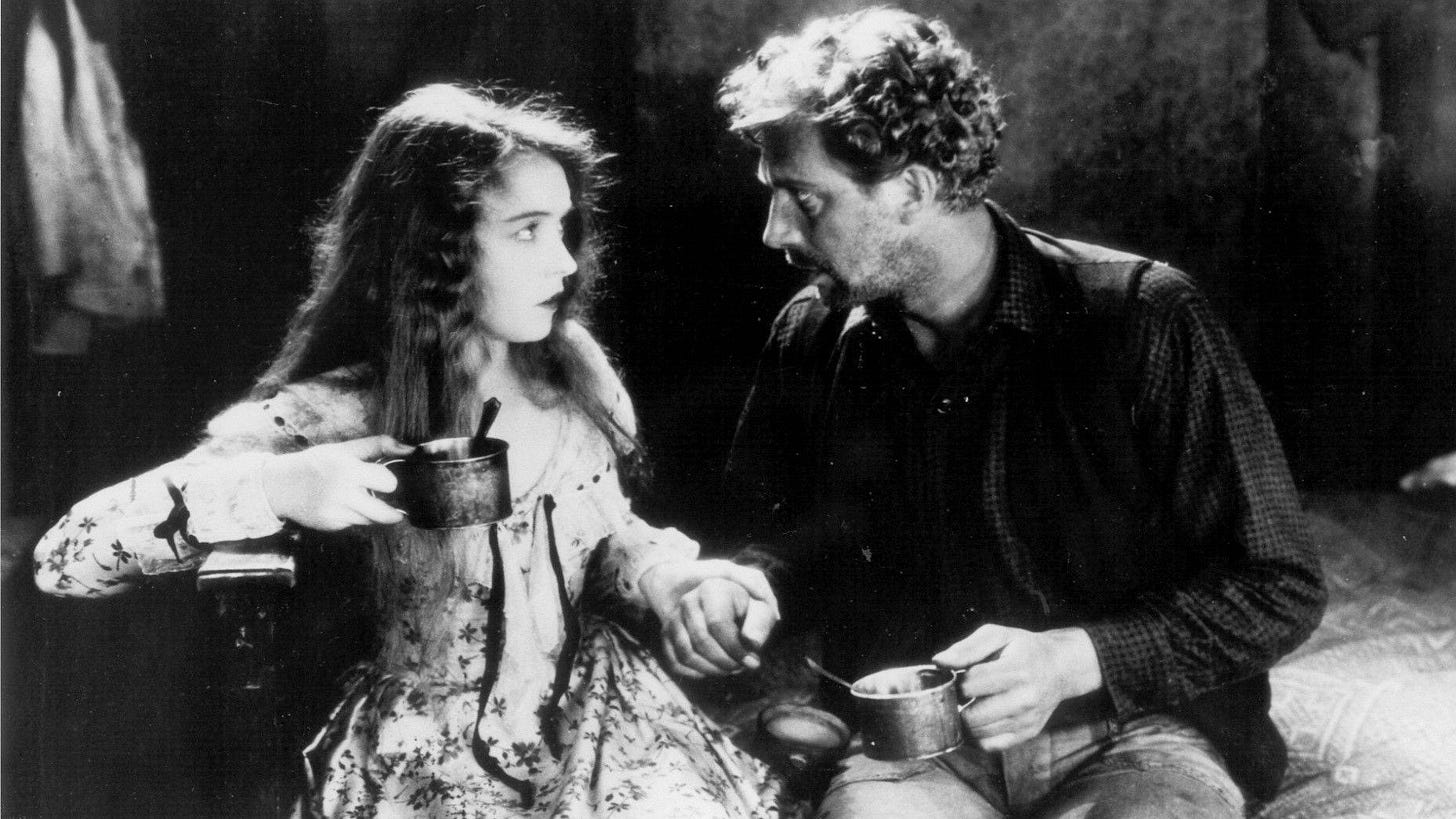Ended up taking it a little bit more slowly this week. That’s alright though, because I think there’s always a whole lot of work to be done especially as we’re heading into a long weekend with today being Good Friday. I didn’t quite go as hard with newer watches as I usually do, but I think that there might have been a lot of opportunities to explore some older favourites - together with some films I loved in high school which I hadn’t seen in ages, up until the Criterion announcement with the July 2025 titles comprising some of these. Also, National Canadian Film Day took place on the 16th; so there’s some more Canadian pride coming forth here!
Without further ado, these are Friday’s Five Films. If you like what you’re seeing here, remember to subscribe for a whole lot more.
#1: Dirty Harry (1971, Don Siegel)
Politically, this movie is most likely a headache. It’s a movie all about how law enforcement is not a force to be reckoned with, because we naturally accept that what they do is for the greater good. Harry Callahan just so happens to embody the best and worst aspects of the police force, and that’s also what makes him so compelling - and a screen hero unlike any other. Nonetheless, this whole movie feels like it’s making a case for how unfettered praise of law enforcement will only create vigilantes from within; an anti-cop statement in some form. It’s a movie that works on such a contradiction, which might be what makes it all the more fun.
#2: Jean de Florette (1986, Claude Berri)
This is a movie that I remember having vague memories of when I saw it in a classroom setting. But Criterion’s brand new 4K UHD release makes this movie shine in a way that I don’t think I’d have imagined possible. Granted, it’s a movie set within the French countryside so I think that the landscapes could only deserve nothing but the absolute best that you can hope for on a home media release, but that’s also what makes the whole movie feel more deeply tragic too. Paired together with Manon of the Spring, it’s perhaps one of the most beautiful French films of the 1980’s - but back-to-back, this take on Marcel Pagnol’s story begins to feel like an epic.
#3: Waydowntown (2000, Gary Burns)
Here is one of the most bizarre movies that I think I’ve seen in quite some time. I think that might be the perfect way in which anyone can enter a film like Waydowntown, because if you were ever wondering what Canada’s own answer to films like Clerks or Office Space would look like, this might be it. And it just so happens that this movie might even be more visually ambitious than said films too. The film being shot mostly digitally only emphasizes the surreal and dreamlike quality of such a work all the more, but it only creates a very absurdist portrait of work under a capitalist system. Looking forward to a restoration in the coming days so I can share this film’s peculiar wonders with a group of friends.
#4: The Wind (1928, Victor Sjöström)
So this is maybe one of the most beautiful silent films that I’ve seen in general. Victor Sjöström’s The Wind isn’t just one of the most ambitious films of said period but I think that when you’re watching how this movie captures sexual tension as it continually intensifies by manner of the presence of someone like Lillian Gish, something more horrifying and beautiful comes out. In some ways, it’s ahead of its time but it’s also a very powerful statement about the chauvinism that audiences would refuse to confront in such a genre like the western.
#5: You Can Count on Me (2000, Kenneth Lonergan)
I’ve always wondered after Manchester by the Sea if Kenneth Lonergan was ever going to make another film. His sensibilities behind the camera are obviously informed by his stage background, but You Can Count on Me, being his feature directorial debut makes a spectacle out of the smaller moments. And even there, we still feel a sense of devastation about all the bad life decisions that we’ve made that would put us in a spot much like where Linney and Ruffalo are in their own lives, but also the decisions that we continue to make that keep us there. It’s a movie built out of love, one that almost feels very rare nowadays - I’d maintained Margaret was his best film for some time, but I think this revisit made me reconsider that.
The Complete Day-by-Day Log
First time watches are denoted with bold text. Scores are on an out of five star basis.
Friday
Tombstone (1993, George P. Cosmatos) - ✯✯✯½
The Wind (1928, Victor Sjöström) - ✯✯✯✯✯, watched on 16mm
Jean de Florette (1986, Claude Berri) - ✯✯✯✯✯
Manon of the Spring (1986, Claude Berri) - ✯✯✯✯✯
Saturday
A Man There Was (1917, Victor Sjöström) - ✯✯✯✯½
Seaside Serendipity (2025, Satoko Yokohama) - ✯✯✯✯
Kung Fu Rascals (1992, Steve Wang) - ✯✯✯✯
Sunday
Alice, Sweet Alice (1976, Alfred Sole) - ✯✯✯✯
Crossing Delancey (1988, Joan Micklin Silver) - ✯✯✯✯✯
Body Melt (1993, Philip Brophy) - ✯✯✯
Monday
The Grifters (1990, Stephen Frears) - ✯✯✯✯✯
Bring Them Down (2024, Christopher Andrews) - ✯✯✯½
Grand Tour (2024, Miguel Gomes) - ✯✯✯✯
Tuesday
Tiger Stripes (2023, Amanda Nell Eu) - ✯✯✯
Risky Business (1983, Paul Brickman) - ✯✯✯✯✯
Beeba Boys (2015, Deepa Mehta) - ✯✯✯
Don’t Look Now (1973, Nicolas Roeg) - ✯✯✯✯✯
Wednesday
You Can Count on Me (2000, Kenneth Lonergan) - ✯✯✯✯✯
Waydowntown (2000, Gary Burns) - ✯✯✯✯, watched on 35mm
Videodrome (1983, David Cronenberg) - ✯✯✯✯✯
Thursday
The Brain (1988, Ed Hunt) - ✯✯✯
Carnal Knowledge (1971, Mike Nichols) - ✯✯✯✯✯
Lázaro at Night (2024, Nicolás Pereda) - ✯✯✯✯
Dirty Harry (1971, Don Siegel) - ✯✯✯✯✯
For real time updates, please follow me on Letterboxd here.










